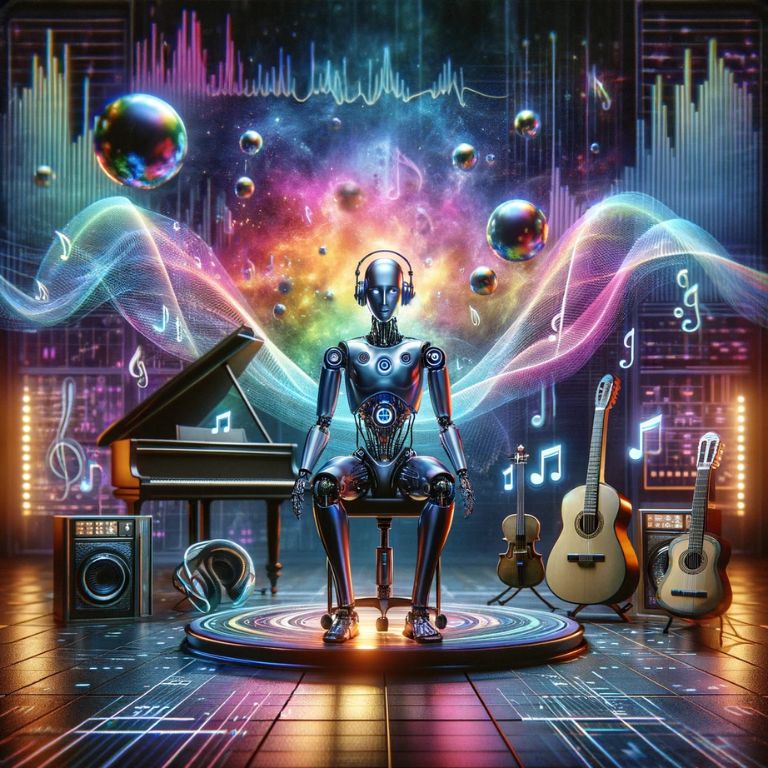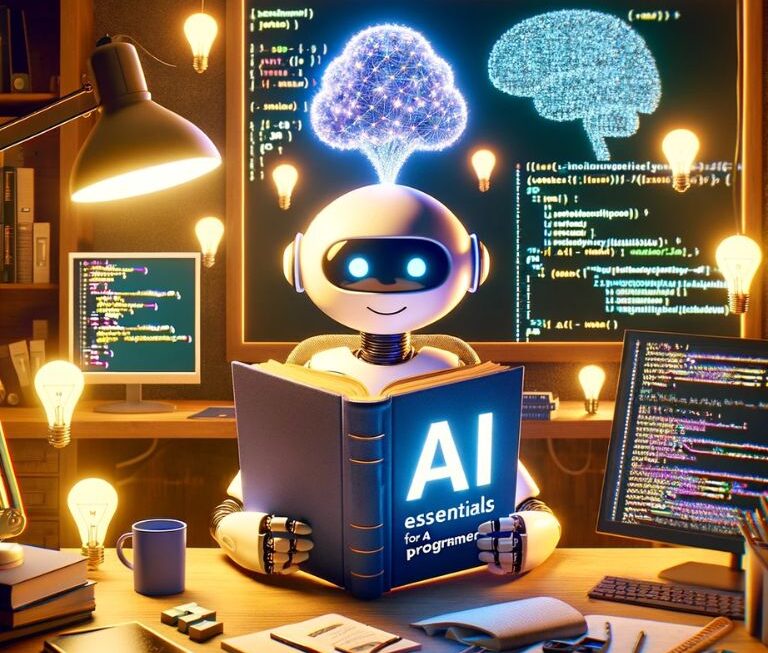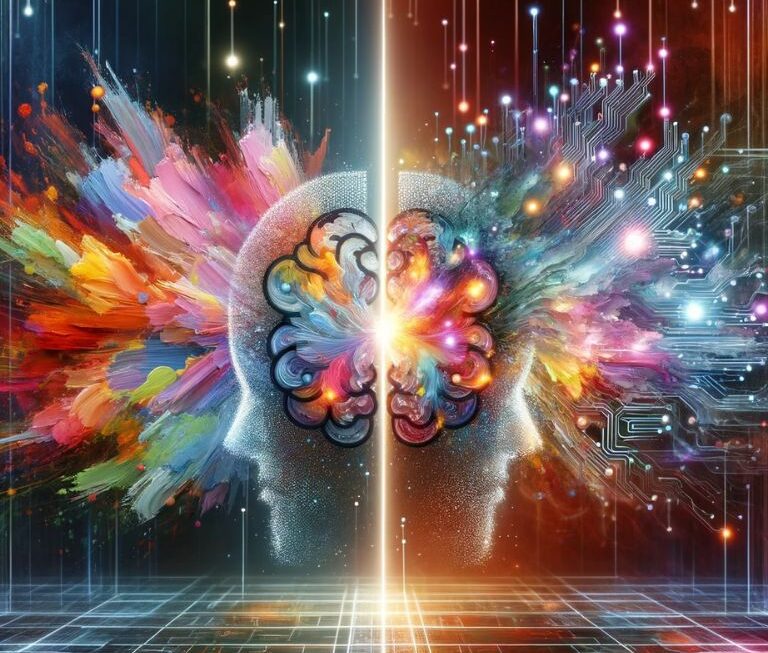The integration of Artificial Intelligence (AI) in music composition marks a groundbreaking shift in the way we understand and create music. This transformation is not just a recent phenomenon; it’s the culmination of years of technological advancement and artistic exploration. In this introduction, we’ll delve into the evolution of AI in music and examine its current role in shaping the future of musical creativity.
Brief Overview of the Evolution of AI in Music
In the mid-20th century, AI and music began their exploration, merging computational algorithms with musical creativity. Evolving with advanced machine learning, AI now analyzes vast musical data, generating compositions akin to human-made music. Deep learning amplifies AI’s capabilities, crafting emotionally resonant music that redefines creativity. Today, AI democratizes music, providing accessible tools for composers across genres, from symphonies to songwriting and film scores, fostering innovation in the music-making process.
The Mechanics of AI-Driven Music Composition
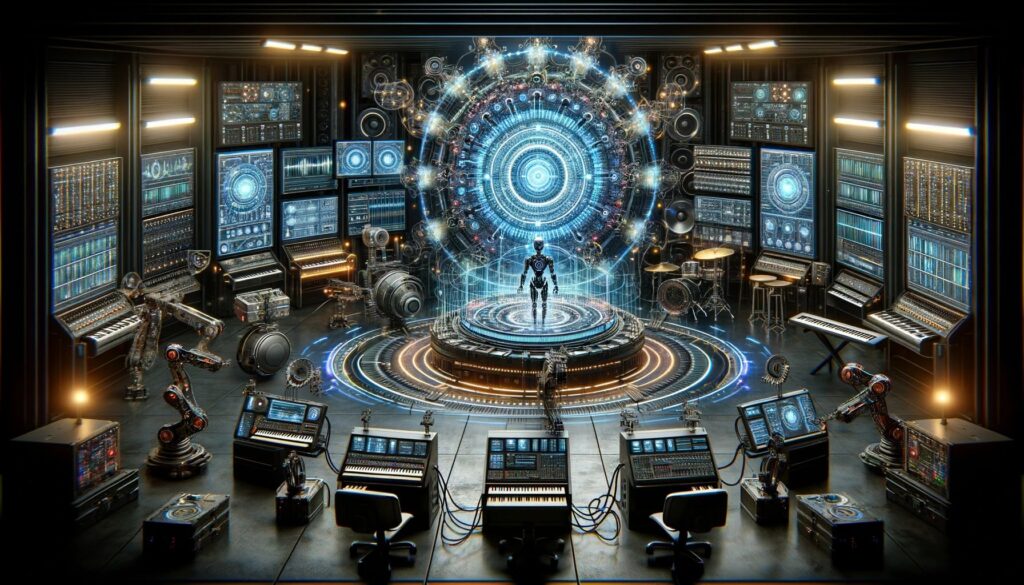
The process of AI-driven music composition is rooted in a complex interplay of advanced technologies and algorithms. Understanding these underlying mechanisms sheds light on how AI is transforming the art of music creation.
Exploring the Technologies Behind AI Music Composition
Several key technologies power AI in music composition:
- ML for Music: ML algorithms enable AI to learn from music data, generating new compositions.
- Neural Networks: AI uses these brain-like networks for music creation, with human-like intuition.
- NLP in Music: NLP interprets and generates music by treating notes and rhythms like language.
- Algorithmic Composition: AI enhances rule-based music creation methods.
- Data-Driven Analysis: AI replicates music styles through advanced data analysis.
How AI Interprets and Processes Musical Elements
AI excels in various musical aspects. It comprehends harmony by studying chord progressions and key changes, adapting to specific genres like classical or jazz. For melodies, AI recognizes note sequences and rhythmic values, crafting original tunes that adhere to distinct musical styles or blend elements from multiple genres. Additionally, AI handles rhythmic patterns adeptly, analyzing timing, tempo, and structures from various music genres, proving particularly valuable in rhythm-focused genres like electronic or dance music.
Creativity and AI: A Symbiotic Relationship
The intersection of AI and music composition has ushered in a new era where creativity is not just the domain of humans but is a collaborative effort between humans and machines. The role of AI in this dynamic is not just to imitate but to inspire and expand the horizons of musical creativity.
Analyzing How AI Expands Creative Possibilities in Music
AI is transforming music, blending genres to create novel compositions. Musicians and composers use AI to explore new creative frontiers and expand sonic possibilities. Additionally, AI serves as a creative partner, inspiring composers with unconventional ideas and pushing the boundaries of musical expression, resulting in innovative and emotionally resonant compositions that captivate audiences.
Examples of AI-Generated Musical Compositions
- AIVA: Recognized by SACEM, AIVA composes classical music with innovative twists, featured in films and games.
- IBM’s Watson Beat: Collaborated with producer Alex da Kid to create “Not Easy,” blending pop, rock, and hip-hop styles, demonstrating its versatility.
- Google’s Project Magenta: Part of AI research, Project Magenta’s NSynth uses neural networks to create unique sounds, expanding artists’ auditory options.
The Impact of AI on Musicians and Composers
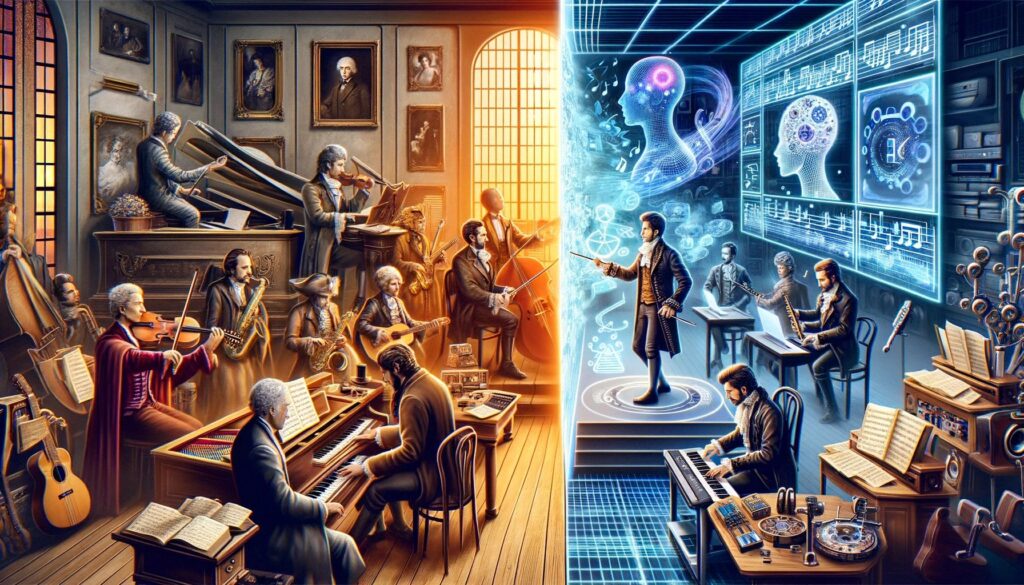
The rise of AI in music composition has significant implications for musicians and composers, reshaping their roles and the way they approach their craft. This technological advancement offers both opportunities and challenges, redefining the landscape of the music industry.
Discussing the Implications of AI for Professional Musicians and Composers
- Enhanced Creative Tools: AI empowers musicians by enabling experimentation with styles, harmonies, and rhythms, fostering innovation and diversity in compositions.
- Competition and Collaboration: AI poses competition but also encourages collaboration, blending human emotion with AI efficiency for richer music creation.
- Skill Development: Musicians must adapt by learning AI tools, making AI literacy a vital aspect of modern musical education.
Balancing Human Creativity with AI’s Capabilities
- Human Touch: AI can’t replicate the emotional and cultural depth of human composers. Leveraging AI should enhance, not replace, human qualities in music.
- Collaborative Synergy: AI should serve as a partner, handling technical aspects to free human artists for creativity, resulting in unique music impossible for humans or AI alone.
- Ethical and Artistic Considerations: Debates revolve around AI’s impact on originality, copyright, and music’s diversity. Guidelines are needed to ensure responsible AI use enhances music’s artistic value.
Ethical Considerations and Authorship in AI Music
The integration of AI in music composition raises important ethical questions, particularly concerning copyright, ownership, and the role of AI in the creative process. These issues are central to understanding the evolving landscape of music production in the AI era.
Addressing Issues of Copyright and Ownership in AI-Generated Music
Copyright issues in AI-generated music pose complex challenges. Determining ownership – the AI creator, user, or AI itself – is unclear, especially when AI mimics human compositions. Clear legal frameworks are needed to address these nuances, ensuring fair recognition and redefining authorship in AI-generated content.
The Debate Over AI’s Role in the Creative Process
AI’s role in music creation sparks debate. It enhances human creativity but raises concerns about diminishing human skill and homogenizing music. The question of whether AI-generated music is truly ‘creative’ due to its lack of consciousness is also debated. These discussions shape the future of music, balancing AI’s capabilities with preserving music’s human essence.
AI in Music Education and Therapy
The applications of AI in music extend beyond composition and performance, playing a significant role in education and therapy. AI’s capabilities in these areas are opening new avenues for learning and healing through music, making it more accessible and tailored to individual needs.
Utilizing AI for Educational Purposes in Music
In music education, AI is transforming the learning process by providing personalized, real-time feedback and tailored exercises to students, addressing their specific needs, and enhancing their technical skills. AI also creates interactive, engaging virtual environments for students to experiment with various instruments and musical styles, fostering creativity and exploration. These AI-driven tools are especially valuable in situations with limited access to human teachers, making quality music education resources more accessible to a broader audience.
The Role of AI in Music Therapy and Its Benefits
AI is emerging as a potent ally in music therapy, offering personalized healing experiences. AI-powered applications assess emotional and physiological responses, tailoring therapeutic music to reduce stress, anxiety, and pain. Additionally, AI aids communication in therapy, particularly for those with challenges like autism or speech impairments, by analyzing non-verbal cues. This integration showcases AI’s adaptability and potential for positive impact, enhancing music education and therapy, and utilizing music as a tool for healing and personal growth.
The Prospects of AI in Music Composition
As we look to the future, the role of AI in music composition is poised for significant advancements and deeper integration into the music industry. The potential for innovation and transformation in this field is vast, with AI continuing to redefine the boundaries of musical creation.
Predictions and Potential Advancements in AI Music Composition
- Enhanced Collaboration: Future AI will offer more intuitive and expressive collaborative tools for composers.
- Diverse Music Generation: Advanced AI will create a wider array of musical styles, even birthing new genres through cultural fusion.
- Real-Time Composition: AI could compose and adapt music live, reacting to the environment or audience.
- Personalized Music: AI will craft tailored music experiences based on individual preferences, moods, or physiological responses.
- Predictive Models: AI will predict music industry trends, aiding artists and producers in crafting resonant music.
The Ongoing Evolution of AI’s Role in the Music Industry
AI’s integration into the music industry is an ongoing evolution, expanding beyond composition to areas like recommendation, marketing, and performance. As AI technologies advance and become more accessible, they are poised to become standard tools for musicians, producers, and educators. This shift presents challenges related to copyright and ethics but holds undeniable potential for enriching the music experience. AI’s growth within the industry promises to unlock new creative frontiers, reshaping the creation and enjoyment of music in the digital age.
Conclusion
AI in music composition is a transformative journey, enhancing artistic possibilities without replacing human creativity. This fusion redefines authorship and creativity, sparking a dynamic partnership between technology and art. It challenges traditional concepts, revealing insights into human creativity and the potential of technology for artistic expression. The synergy between AI and music, in this era of creativity, holds vast potential, reflecting the diverse spectrum of human imagination.

